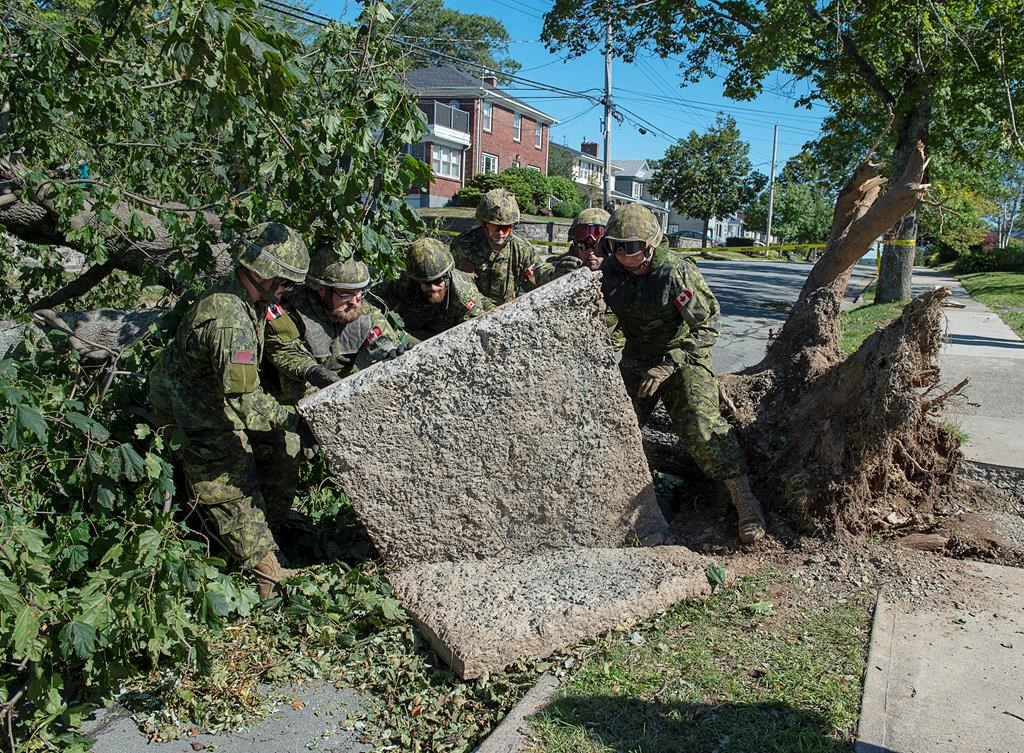The Insurance Bureau of Canada announced Friday that post-tropical storm Dorian, which hit Atlantic Canada on Sept. 7, caused over $105 million in insured damage.

According to the bureau, 70 per cent of the amount is for damage to personal property, 25 per cent is for damage to commercial property and the remaining amount is for damage to automobiles.
READ MORE: Province renews emergency order for crane removal in Halifax
Insurance Bureau of Canada (IBC) is the national industry association representing Canada’s private home, auto and business insurers.
It released a table showing the estimated insured damages for different provinces:
| Province | Insured damage* |
| New Brunswick | $22.5 million |
| Newfoundland & Labrador | $2.5 million |
| Nova Scotia | $62.2 million |
| Prince Edward Island | $17.5 million |
| Quebec | $300,000 |
| Grand Total: | $105 million |
| *Initial estimates |
Hurricane Dorian wreaked havoc from the Bahamas to Atlantic Canada in early September. Halifax, Moncton and much of Prince Edward Island suffered a large portion of the damage, though damage reports were widespread across Atlantic Canada.

Get breaking National news
On Sept. 7, Dorian became a post-tropical storm but maintained hurricane strength when it made landfall to the southwest of Halifax, with estimated sustained winds of 155 km/h.
READ MORE: ‘It’s been a huge loss’: Crane forces early closure of seasonal businesses
According to IBC, due to rainwater-saturated ground and trees being in full leaf, many large trees were uprooted across Atlantic Canada, and the region experienced numerous power outages. Heavy rainfall also caused road washouts and flooding of homes and businesses.
“Severe, unpredictable weather like this is becoming more frequent, resulting in higher costs to homeowners, insurers and governments. Last year, insured damage from severe weather across Canada exceeded $2 billion, the fourth-highest amount of annual losses on record,” said Amanda Dean, Vice-President, Atlantic, Insurance Bureau of Canada (IBC), in a media release.
READ MORE: Two generations of New Brunswick fishing family devastated by Dorian
“That alarming trend has continued in 2019, with over $1 billion in insured losses recorded already this year.”
As the financial cost of the changing climate has been increasing, IBC said it has been working closely with all levels of government to increase investments to lessen the future impacts of extreme weather and build resilience to its damaging effects.

IBC is advocating for improved building codes, better land-use planning, incentives to shift the development of homes and businesses away from areas at highest risk of flooding, and investment in new infrastructure to protect communities from floods and fires.








Comments